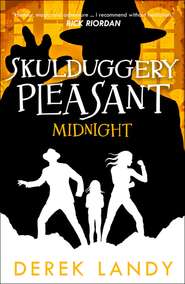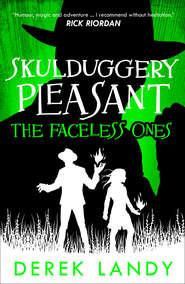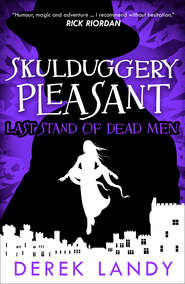По всем вопросам обращайтесь на: info@litportal.ru
(©) 2003-2025.
✖
The Demon Road Trilogy: The Complete Collection: Demon Road; Desolation; American Monsters
Настройки чтения
Размер шрифта
Высота строк
Поля
Amber grabbed her clothes, put them on. Her phone was gone. She started to reach for the glass of water by her bed, but stopped, remembering the Coke. There was a bathroom, clean and polished, looking like it had never been used, and she drank from the faucet and wiped her mouth. Then she went to the door, put her ear against it, heard nothing.
She opened it, hesitated, and stepped out.
The apartment was vast, impressive, and utterly devoid of personality. It looked like the penthouse suite of a hotel. Everything was clean and in place. Every colour matched, every curve and line complemented the curves and lines around it. It had all been designed to cohere, to fit, to belong. There was a designer kitchen to her left, all gleaming metal with a huge breakfast island, and a balcony to her right, a view of the city beyond, all glass and palm trees, and ahead of her was the way out.
She was halfway to the door when she noticed Imelda standing in the living room, her back to her. She was on the phone, listening while someone spoke.
Amber reached the apartment door, opened it silently, and stepped out into the corridor. White walls. She moved up to the corner, and peered round.
At the end of the corridor was the elevator, the door to the stairwell, and a window. Standing at that window, looking out over the skyline, was a tall man in blue jeans, black T-shirt and battered cowboy boots. On the side table behind him there was a mirror, a bowl of potpourri and a shotgun.
Amber stared at the shotgun.
She pressed herself back against the wall and closed her eyes. She was breathing too loud. She was breathing too loud and he’d hear her, she knew he would. She peeked out again. He was still looking out of the window. The shotgun was still there.
She had no choice. She couldn’t go back, and she couldn’t stay where she was. She had to do something. She had to move forward.
Fighting the urge to break into a sprint, Amber took small, slow steps. She got to the side table without making a sound, then picked up the shotgun. It clinked slightly on the table and the man turned from the window. He was good-looking, somewhere in his mid-forties. His black hair had hints of grey. His narrow eyes were calm.
“You should put that down before it goes off,” he said.
“Get out of my way. Get out of my way or I’ll … I’ll shoot you.”
“Your hands are trembling,” he said. “Give it to me.” He reached his left hand forward slowly and Amber took a single step back and then there was somehow a pistol in his other hand, and he was aiming it right at her head. “Now you’re really scared,” he said. “Now you want to run screaming. That’s perfectly understandable. But I’m not going to move. You’re not getting past me.”
“Please,” she said, the shotgun shaking badly in her grip now. “They’re trying to kill me.”
“Then why aren’t you dead?” he asked. “Put the shotgun back on the table and go back inside the apartment.”
Tears ran down her face. “Please don’t make me.”
“Put down the shotgun.”
“I don’t understand what’s going on.”
“I’m not the one who’s going to explain it to you. Either shoot me or put down the shotgun.”
Amber shook her head, but found herself putting the weapon on the side table, anyway. The man slid his pistol into a holster on his belt before picking up the shotgun.
“Probably wasn’t even loaded,” she said quietly.
“No, it was,” the man responded. “You would have cut me in two if you’d pulled that trigger. Go back inside, Amber. Talk to Imelda.”
She didn’t have much of a choice. Amber walked back the way she’d come, hesitated at the apartment door, and then walked in.
Imelda saw her, held up a finger for Amber to wait.
“We’re keeping tabs on all of her friends, aren’t we?” she said into the phone pressed to her ear. “Exactly. I wouldn’t worry about this, Kirsty. We’ll find her. It’s only a matter of time. Okay, I’ve got to go. I want to check out the principal of her school.” She listened. “Because after that wonderful display yesterday, she knows for certain that the principal isn’t in league with us. Yes, I am clever. I’ll call you if I hear anything. Bye now.”
Imelda hung up. “Want some breakfast?” she asked, walking to the kitchen. She poured orange juice into a tall glass and placed it beside an assortment of croissants and pastries. Then she looked back at Amber and waited.
“What’s happening?” Amber said.
“It really is a long story,” Imelda said.
“There’s a man outside with a gun.”
“That’s a friend of mine, Milo Sebastian. You don’t have to worry about him. You have to worry about your parents.”
“What’s wrong with them?”
Imelda managed a smile. “You think they’re behaving oddly? That’s just because you don’t know them very well.”
“They’re demons. Monsters.”
“Oh, Amber … We’re all monsters. Metaphorically, I mean. The whole human race. We hate, we kill, we do terrible things to each other and to the planet. But we are also, in our case, actual monsters. With horns.”
“I really don’t understand any of this,” said Amber. “Please just tell me what’s happening.”
“I’m going to explain everything. But to start with I’ll have to show you. I’m going to change now, all right? I’m going to turn into … well, into a monster, just like your parents. And I want you to remain calm. Can you do that?”
Amber swallowed, and nodded.
“I’m not going to hurt you. I just want to show you.”
“Okay.”
“You’re sure?”
“Yes.”
“Okay. Once again, I want you to remain calm. You’re perfectly safe.”
Imelda’s skin turned red and her teeth grew sharp and she had black horns and it all took less than a heartbeat.
Amber screamed, picked up a potted plant and threw it, but it fell short and smashed to the floor.
“You killed Henry,” Imelda said, dismayed.
“Help me!” Amber screamed.
“You’re panicking,” said Imelda.
“You’re a monster!” Amber screeched.
“This is not news to me.”
Amber sprinted for the door.











